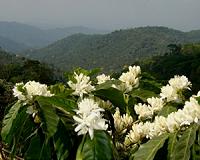| . |  |
. |
London, UK (SPX) Aug 13, 2010 Despite their tiny brains, bees have remarkable navigation capabilities based on their vision. Now scientists have recreated a light-weight imaging system mimicking a honeybee's field of view, which could change the way we build mobile robots and small flying vehicles. New research published in IOP Publishing's Bioinspiration and Biomimetics, describes how the researchers from the Center of Excellence 'Cognitive Interaction Technology' at Bielefeld University, Germany, have built an artificial bee eye, complete with fully functional camera, to shed light on the insects' complex sensing, processing and navigational skills. Consisting of a light-weight mirror-lens combination attached to a USB video camera, the artificial eye manages to achieve a field of vision comparable to that of a bee. In combining a curved reflective surface that is built into acrylic glass with lenses covering the frontal field, the bee eye camera has allowed the researchers to take unique images showing the world from an insect's viewpoint. In the future, the researchers hope to include UV to fully reflect a bee's colour vision, which is important to honeybees for flower recognition and discrimination and also polarisation vision, which bees use for orientation. They also hope to incorporate models of the subsequent neural processing stages. As the researchers write, "Despite the discussed limitations of our model of the spatial resolution of the honeybees compound eyes, we are confident that it is useful for many purposes, e.g. for the simulation of bee-like agents in virtual environments and, in combination with presented imaging system, for testing bee-inspired visual navigation strategies on mobile robots."
Share This Article With Planet Earth
Related Links Institute of Physics The Flowers and Fruits of Earth
 Shade-Coffee Farms Support Native Bees That Help Maintain Genetic Diversity
Shade-Coffee Farms Support Native Bees That Help Maintain Genetic DiversityAnn Arbor MI (SPX) Jul 28, 2010 Shade-grown coffee farms support native bees that help maintain the health of some of the world's most biodiverse tropical regions, according to a study by a University of Michigan biologist and a colleague at the University of California, Berkeley. The study suggests that by pollinating native trees on shade-coffee farms and adjacent patches of forest, the bees help preserve the genetic d ... read more |
|
| The content herein, unless otherwise known to be public domain, are Copyright 1995-2010 - SpaceDaily. AFP and UPI Wire Stories are copyright Agence France-Presse and United Press International. ESA Portal Reports are copyright European Space Agency. All NASA sourced material is public domain. Additional copyrights may apply in whole or part to other bona fide parties. Advertising does not imply endorsement,agreement or approval of any opinions, statements or information provided by SpaceDaily on any Web page published or hosted by SpaceDaily. Privacy Statement |